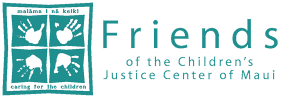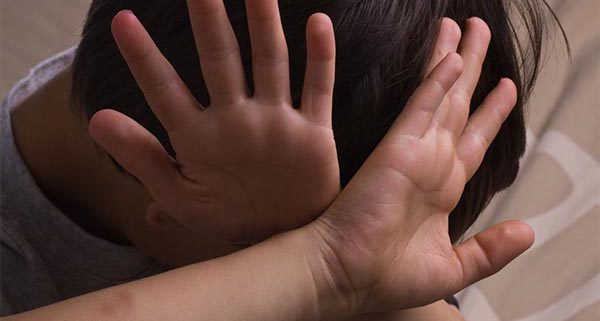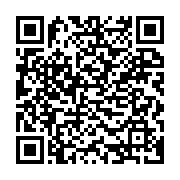Broken Children Become Broken Adults
A message from our Executive Director
We need to intervene and begin the healing process before it is too late.
Seeing Beyond Misbehavior
Children who act out may appear strong but are surprisingly fragile inside. When their externalized misbehaviors are met with an assault of adult force, they come to believe that no one understands them or cares about their needs. This simply motivates further acting out.
We always need to look beyond a difficult behavior and ask ourselves:
- What is the child really saying
- What does the child really need
Behavior provides clues to the history of the child-their pain, their fears and their needs. Although we address misbehavior directly and quickly, we also must address it sensitively and responsively as a clue to the deepest needs of the child.
Children who have encountered deprivation or harm before they were brought home lack many types of connections. They can lack social connections, emotional connections, neurochemical connections, cognitive connections and sensory connections. As a result, they easily become isolated in a world of their own. Our goal is to bring these children closer to us, into our sphere of warm guidance and nurturing care, so we can help them connect to their world and to the people who care deeply about them.
Our intent is to see beyond maladaptive behaviors to the real child who has been holed up inside a fortress of fear. We use the term “real child” to refer to the core of highest potential inside a young person. It’s always our goal to free up and reveal this magnificent inner core and to enable the child to experience his or her full potential as a loving, connected and competent individual.
What happens in early childhood can matter for a lifetime
- Living with someone who is mentally ill or who has suicidal ideation
- Experiencing divorce or parental separation
- Living with someone who has an alcohol or drug problem
- Being a victim or witness of neighborhood violence
- Experiencing socioeconomic hardship
- Witnessing domestic violence
- Having a parent in prison
- Being treated or judged unfairly due to race or ethnicity
- Experiencing the death of a parent
- Emotional abuse
- Physical abuse
- Sexual abuse
Early experiences influence the developing brain, chronic stress can be toxic to this development, significant early adversity can lead to lifelong problems, early intervention can prevent the consequences of early adversity and stable, caring relationships are essential for health childhood development.
There is a lesson and a message for all of our societies buried in this. Adverse Childhood Experiences have a terribly deleterious effect on children’s lives. Living in households where domestic abuse and violence are the norm has a significant and adverse effect on the development and mental health of children. Suffering from abuse, be it physical, emotional, sexual, exploitative, trafficking or neglect, can have a profound effect on the emotional well-being of children and their ability to grow up and realize their true potential as the future of our society.
It takes a community to protect a child and it is clear that society has a role that is more important than ever before to protect those children within it who are at risk of, or who have suffered from, significant harm. The challenge for these people and organizations responsible for resourcing societies is what weight they will place on the importance of positive childhood experiences and what resources will be provided to allow children to maximize their potential. The challenge for communities and the societies in which they function is whether or not they are prepared to accept the responsibility that society clearly has in protecting children for if they do not, and protecting children is seen as someone else’s business, how can we expect things to improve for the children who live within those communities?
We teach our kids to respect adults and other children, and they should – respect is an important part of growing up to be a pretty great human. There’s something else though that’s even more important – teaching them to respect themselves first.
Sometimes that means letting them know when we don’t support something an adult in their lives has said or done and giving them permission to close down to the influence of those who contaminate their self-esteem, their happiness and their self concept. It’s not always easy or possible to withdraw from a relationship, but with our support they can minimize the influence and impact of those broken adults who might otherwise do harm.
Toxic relationships are ones in which someone’s own negative behavior can cause emotional damage or contaminate the way a child sees himself or herself. They can lead to anxiety, depression, physical illnesses and feelings of isolation. Children can end up blaming themselves and feeling guilt or shame. Even if there is something about our kids that needs a little bit of a nudge in a different direction, any behavior that makes them feel less than or ashamed just won’t do it. In fact, it will do damage.
We all have an inner voice. It’s the one that tells us how we’re going, whether we’re good enough, how we think the world sees us, what we’ve done wrong and what we’ve done right. When an adult is toxic, the risk is that the inner voice of the child will pick it up and make the words their own. Children are born awesome. Our job as the adults in their lives is to make sure they know this and to minimize the effect of anyone who might influence them to feel otherwise. When children feel stupid, slow, naughty, troublesome, untrustworthy, incapable or silenced in response to the comments of any adult in their lives, it’s time for us to be their voice.
The Friends main goal is to reach out to the youth who have been traumatized by abuse in their lives and are now acting out with unhealthy behaviors. Through our prevention efforts since our Executive Director started them 3 years ago we have had an amazing amount of success. We started our first year with working with high risk teens and worked on a anti-bully project. Most of the youth stated that they were bullies and did not understand the need for them to participate. When explained that their knowledge was of great value to us they agreed to participate. For 7 months we worked on researching the effects of bullying on the victims. This type of awareness indirectly addresses their behaviors through the project. To say the least by the end of the project they personally stated in the three anti-bullying videos that we created that they we sorry for the way they treated individuals. They show remorse and regret for their behaviors. This indirectly addresses the behaviors and the impact it has had in their lives and the community
The Friends have been able to focus more on being proactive rather than reactive when it comes to child abuse and neglect. From the funds we received last year we worked with high risk teens creating a prevention video regarding child abuse. Two years ago we have started a program called “Breaking the Cycle” and have been extremely successful in reaching these high risk teens. Since creating this program we had 5 students come forward disclosing both sexual and physical abuse.
Mahalo,
Paul Tonnessen
Executive Director





